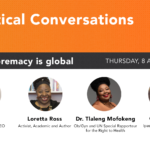
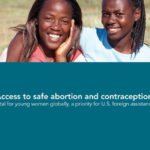
The United States, as the world’s foreign assistance leader, must play a key role in safeguarding a comprehensive and integrated approach to sexual and reproductive health and rights for young women. This fact sheet outlines policy challenges that deny young women their sexual and reproductive rights and puts forth policy actions the U.S. government should take: expand family planning funding, repeal the damaging Helms Amendment, permanently repeal the Mexico City Policy (also called the Global Gag Rule), and continue to work toward a progressive sexual and reproductive health agenda in platforms like the International Conference on Population and Development and the United Nations.
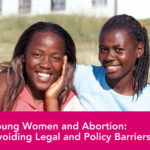
This resource is designed to help advocates and policymakers promote laws and policies that support access to safe abortion for young women. Parental involvement requirements in law or policy are common barriers that push young women toward illegal and often unsafe abortion.
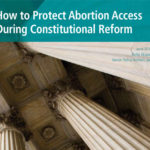
This toolkit is designed to help reproductive rights advocates participate in national constitutional reform processes. It looks at the potential consequences of constitutional protection of life at conception and outlines ways reproductive rights advocates can influence the constitutional reform process. It also may be useful for advocates facing constitutional amendments or engaging in litigation.
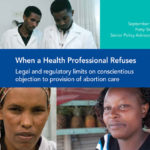
Health professionals’ refusal to provide service that they oppose on moral or religious grounds is a significant barrier to women’s access to safe abortion and other reproductive health services. This resource contains recommendations for enacting laws and regulations that safeguard women’s access to services while still protecting providers’ rights of conscience. It also provides information on human rights standards that address provider refusal and includes a list of further resources.

In Latin America, government responses to the Zika virus have been weak, disregarding the best interests of pregnant women and those who may become pregnant. This brief outlines Ipas’s stance on governments’ responses to the Zika crisis and women’s sexual and reproductive health needs. The brief also lists measures states can take to protect women’s health and rights during the Zika outbreak.
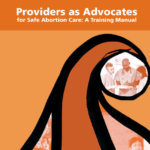
Organized in four parts, this training manual aims to foster an advocacy perspective in health-care providers who are involved in delivering abortion and/or postabortion care. The manual will help providers recognize their personal power as advocates and identify different circumstances and means to advocate for comprehensive abortion care to the full limits of the law.
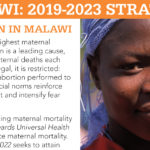
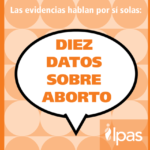
Este manual sirve como guía de referencia rápida para promotores del derecho a decidir. La guía ofrece evidencia factual, que desacredita diez mitos sobre el aborto ampliamente difundidos, y proporciona antecedentes y recursos suplementarios. Esperamos que esta guía ayude a activistas defensores de los derechos reproductivos a responder con confianza a los retos en nuestro trabajo y a continuar abogando por el derecho al aborto basándose en datos científicos claros e imparciales.
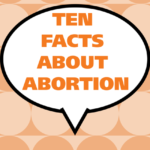
This manual serves as a quick reference guide for pro-choice advocates. The guide offers factual evidence debunking ten widely disseminated abortion myths, and provides supporting background information and resources. We hope this guide will help reproductive rights activists to confidently respond to challenges to our work and to continue advocating for abortion based on clear, scientific and unbiased data.
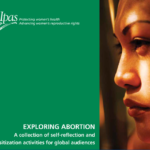
This collection contains five independent self-reflection and sensitization activities on abortion, some of which have been adapted from widely used sexual and reproductive health and rights (SRHR) exercises. They are effective in helping young people reflect on their abortion-related feelings and experiences, as well as in preparing young audiences for further discussions, values clarification, and skills-building related to abortion. Each activity description includes information about objectives, materials needed, timeline and advance preparations. This publication accompanies Abortion care for young women: A training toolkit (ACYTK-E11).
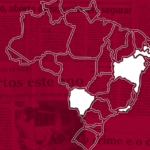
This document gives a summary analysis of primary and secondary data documenting unsafe abortion and the impact of the criminalization of abortion on women’s lives and health and on health services in 5 Brazilian states: Mato Grosso do Sul, Rio de Janeiro, Bahía, Pernambuco, and Paraíba.
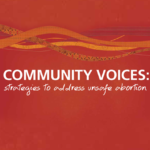
This booklet describes Ipas’s community work with vivid stories and narrative from Ipas staff and partners in the field—from Ethiopia to Mexico.
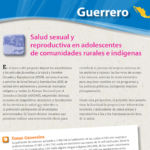
This is a fact sheet with statistical information on the sexual and reproductive health of adolescents in the Mexican state of Guerrero. It is meant to provide relevant information on sexual and reproductive health indicators to health and policy makers as well as recommendation for improving sexual and reproductive health services and access.
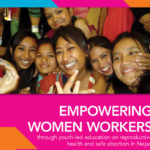
From 2011-2012, Ipas and our partners implemented a series of classes on sexual and reproductive health and rights (SRHR)—including information on safe abortion—for women who work at factories across Nepal’s Kathmandu Valley. This report explains how our project increased women workers’ knowledge of SRHR topics so they can better manage their own health and relationships and serve as resources for their families and communities. The report includes background information on Ipas’s work with youth, the context of sexual and reproductive health services for women workers in the Kathmandu Valley, details on the project’s various components, and explanation of key outcomes.
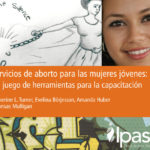
Este juego de herramientas fue creado para proporcionar información y orientación sobre la prestación y accesibilidad de servicios de aborto inducido a mujeres jóvenes (entre 10 y 24 años de edad), según corresponda. Ofrece a capacitadores con experiencia antecedentes, materiales, instrucciones y consejos necesarios para facilitar las sesiones de capacitación de manera eficaz. Dado que los estudios de investigación realizados muestran pocas diferencias en las necesidades clínicas de las mujeres jóvenes en comparación con adultas, el juego de herramientas contiene más información sobre promoción y defensa (advocacy), alianzas y prestación de servicios que sobre temas clínicos. Es un recurso mundial para prestadores de servicios de salud, capacitadores, gerentes y asesores técnicos de programas de servicios de aborto, pero algunos materiales también se pueden utilizar para promover la participación de jóvenes, formuladores de políticas grupos comunitarios, donantes, promotores y otras partes interesadas.
Elaborados después de una investigación realizada con jóvenes en la Ciudad de México y en Tlaxcala, Atrévete a pensar diferente es una serie de tres historietas —Embarazo, Anticonceptivos, y Relaciones afectivas—que ofrecen información a jóvenes de cómo prevenir un embarazo, cómo utilizar y negociar el uso anticonceptivos y cómo mantener un relación afectiva con equidad de género. Las historietas invitan a las y los jóvenes a pensar diferente sobre su sexualidad, su salud y sus derechos.
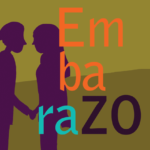
Elaborados después de una investigación realizada con jóvenes en la Ciudad de México y en Tlaxcala, Atrévete a pensar diferente es una serie de tres historietas —Embarazo, Anticonceptivos, y Relaciones afectivas—que ofrecen información a jóvenes de cómo prevenir un embarazo, cómo utilizar y negociar el uso anticonceptivos y cómo mantener un relación afectiva con equidad de género. Las historietas invitan a las y los jóvenes a pensar diferente sobre su sexualidad, su salud y sus derechos.
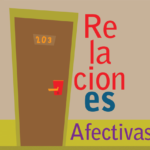
Elaborados después de una investigación realizada con jóvenes en la Ciudad de México y en Tlaxcala, Atrévete a pensar diferente es una serie de tres historietas —Embarazo, Anticonceptivos, y Relaciones afectivas—que ofrecen información a jóvenes de cómo prevenir un embarazo, cómo utilizar y negociar el uso anticonceptivos y cómo mantener un relación afectiva con equidad de género. Las historietas invitan a las y los jóvenes a pensar diferente sobre su sexualidad, su salud y sus derechos.
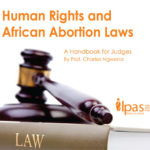
This handbook, written by Prof. Charles Ngwena and published by the Ipas Africa Alliance, is designed to raise judges’ awareness about the human rights obligations associated with abortion. Judges can use it as a guide to interpret and apply domestic abortion laws, taking into account global and regional human rights standards

